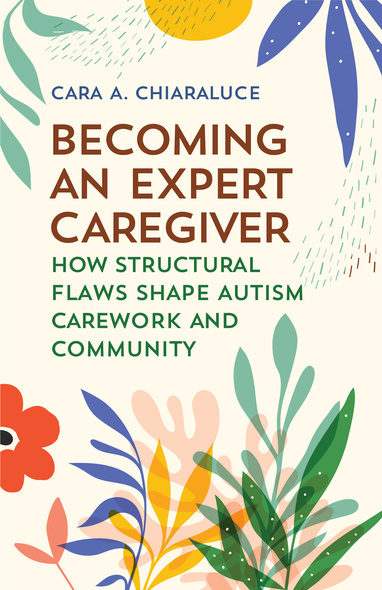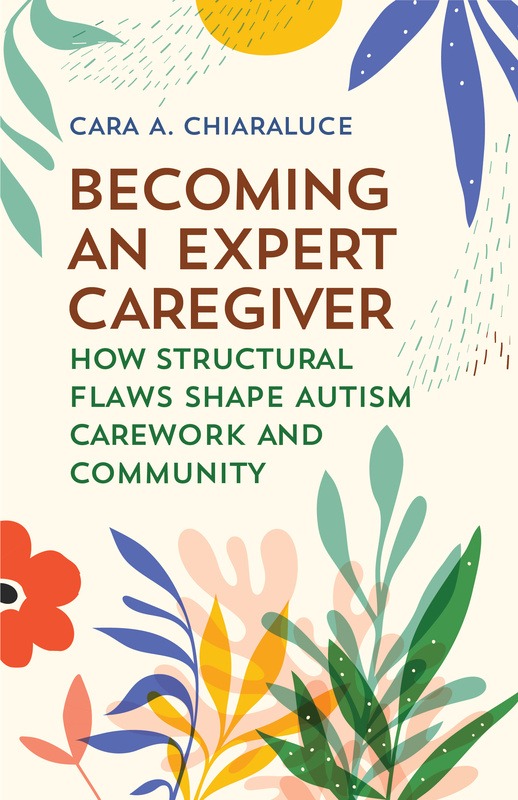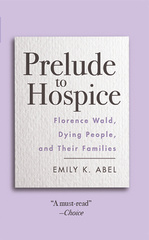
176 pages, 5 1/2 x 8 1/2
1 table
Paperback
Release Date:13 Dec 2024
ISBN:9781978831902
Hardcover
Release Date:13 Dec 2024
ISBN:9781978831919
Becoming an Expert Caregiver
How Structural Flaws Shape Autism Carework and Community
SERIES:
Carework in a Changing World
Rutgers University Press
“The hardest thing is dealing with the rest of the world. And we kind of accommodate our lives around that. But the rest of the world doesn’t.” These poignant words were spoken by Charlotte, a mother and primary caregiver of a five-year-old autistic boy, and her words reference the structural arrangements of our world that shape autism carework today. This book features the voices of fifty primary caregivers of autistic and neurodivergent children who illuminate the process through which laywomen become expert caregivers to provide the best care for their children. Expert caregiving captures an intensification of traditional family carework – meeting dependents’ financial, emotional, and physical needs – that transcends the walls of one’s private home and family and challenges the strict boundaries between many worlds: lay and professional, family and work, private and public, medical and social, and individual and society. The process of becoming an expert caregiver spotlights several interesting paradoxes in sociological literature, particularly regarding gender, family, and medicalization, and often forgotten structural flaws in “the rest of the world.”
Throughout the chapters in this book, the expert caregiver is one person who faces unbelievably daunting tasks of filling or reforming persistent institutional gaps, primarily in education and health care, and subverting ableist cultural norms. Without institutional support, answers to their questions, or pragmatic avenues to access resources, lay caregivers become the experts. Their trials and tribulations, especially when navigating the boundaries of professional/lay and private/public worlds, illuminate a type of carework that is increasingly relevant to a growing number of young families caring for neurodivergent, disabled, medically fragile, and/or chronically ill children. These stories offer a vivid picture of the often invisible complex challenges and structural forces that drive individuals to become expert caregivers in the first place.
Throughout the chapters in this book, the expert caregiver is one person who faces unbelievably daunting tasks of filling or reforming persistent institutional gaps, primarily in education and health care, and subverting ableist cultural norms. Without institutional support, answers to their questions, or pragmatic avenues to access resources, lay caregivers become the experts. Their trials and tribulations, especially when navigating the boundaries of professional/lay and private/public worlds, illuminate a type of carework that is increasingly relevant to a growing number of young families caring for neurodivergent, disabled, medically fragile, and/or chronically ill children. These stories offer a vivid picture of the often invisible complex challenges and structural forces that drive individuals to become expert caregivers in the first place.
A rich and nuanced ethnography that charts how women challenge the hegemonic assumptions of white, middle-class narratives of motherhood, gender, and family life as caregivers of autistic children.
CARA A. CHIARALUCE is a senior lecturer in the Department of Sociology at Santa Clara University. She conducts research in the fields of carework, gender and family, health, and disability.
Introduction
Appendix B: Interview Schedule
Acknowledgments
References
Index
- Autism Complexities: Competing Paradigms and Historical Context
- Tracing Transformation: The Birth of the Expert Caregiver
- Making Sense of Difference: Building the Expert Caregiver Toolkit
- Transcending the Private Sphere: Extending Carework into the Community
- Potentials and Limits of Expert Caregiving: Community Carework and Medicalization
- “I Need Some Air Down Here and Nobody Is Noticing”: Caring about the Expert Caregiver
Appendix B: Interview Schedule
Acknowledgments
References
Index









